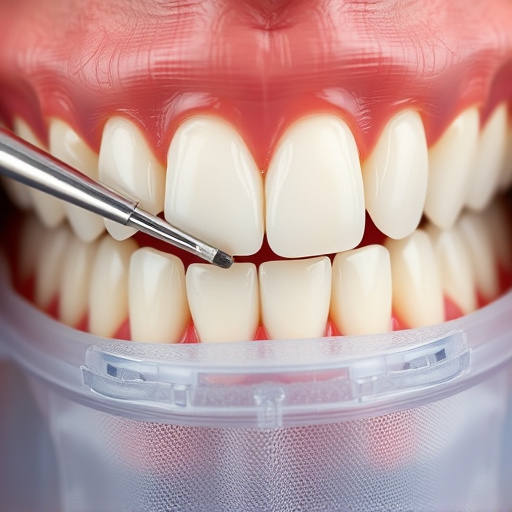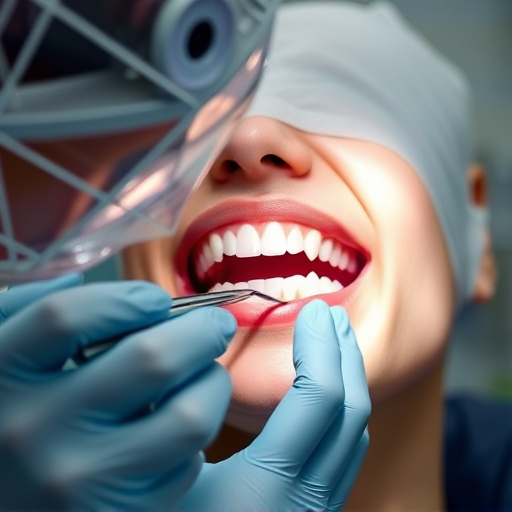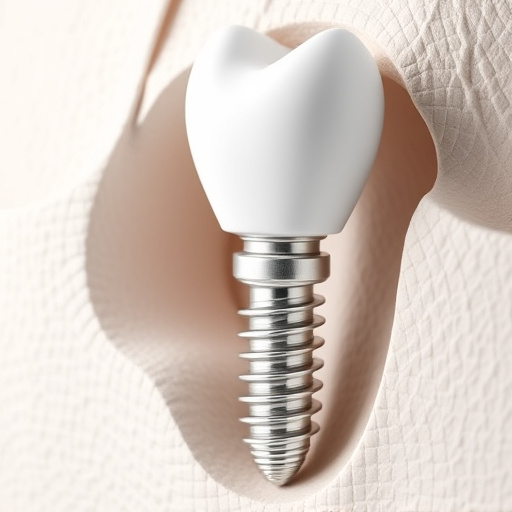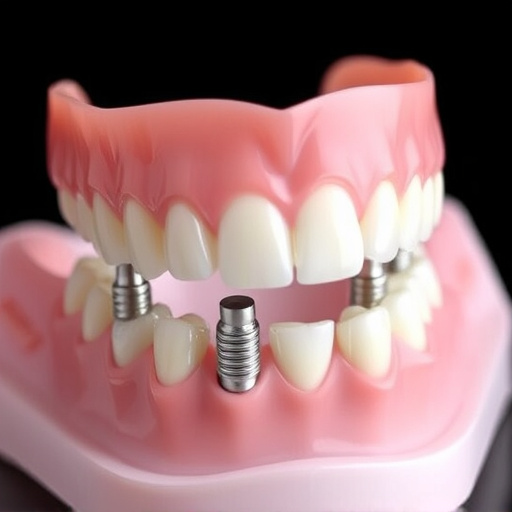Dental anxiety, caused by traumatic experiences, pain sensitivity, and fear of confinement, profoundly impacts oral health. Treatment options include cognitive-behavioral therapy (CBT), relaxation techniques, and medication to manage fear. CBT helps change negative thoughts and teaches relaxation, while gradual exposure and technology distractions reduce anxiety during procedures. Effective dental anxiety treatment allows individuals to overcome fears, maintain good oral hygiene, and receive necessary care.
Dental anxiety can make even the simplest procedures feel overwhelming. This condition, characterized by fear or distress during dental visits, affects millions. Understanding its causes and symptoms is the first step towards relief. This article explores effective treatment options tailored for nervous patients, from cognitive-behavioural therapy to sedation techniques. We also share inspiring success stories of individuals who have conquered their dental anxiety, transforming not just their smiles but their lives. Discover how dental anxiety treatment can help you overcome your fears and achieve peace of mind in the dental chair.
- Understanding Dental Anxiety: Causes and Symptoms
- Effective Treatment Options for Nervous Patients
- Transforming Smiles: Success Stories of Dental Anxiety Relief
Understanding Dental Anxiety: Causes and Symptoms

Dental anxiety is a common condition that can significantly impact an individual’s oral health and overall well-being. It manifests as an intense fear or nervousness related to dental procedures, even routine ones like check-ups or cleanings. Understanding the causes and symptoms of this phobia is crucial in providing effective dental anxiety treatment. Many people experience dental anxiety due to past traumatic experiences, such as painful procedures or negative associations with dental visits. Some individuals may also have a heightened sensitivity to pain or a general fear of being trapped or confined, which can be triggered by certain dental tools or environments.
Symptoms can range from mild discomfort and nervousness to severe panic attacks. Patients might avoid regular dental check-ups, leading to neglecting oral hygiene and potentially causing more harm than good in the long run. Emergency dental care often becomes a last resort for anxious patients who’ve postponed routine visits. Dental bonding and cleanings, while essential maintenance practices, can become daunting tasks for those struggling with dental anxiety. Effective dental anxiety treatment involves various techniques, including cognitive-behavioral therapy, relaxation exercises, and sometimes medication, to help patients manage their fear and receive the necessary dental care.
Effective Treatment Options for Nervous Patients

When it comes to treating nervous patients with dental anxiety, several effective options are available that can make their dental experiences more manageable and less stressful. One of the most common approaches is cognitive-behavioural therapy (CBT), which helps individuals identify and change negative thoughts and behaviours associated with dental procedures. This therapy teaches patients relaxation techniques, such as deep breathing exercises, to reduce anxiety levels during treatments like tooth extractions or wisdom tooth removal.
Another valuable strategy is gradual exposure, where patients are gradually introduced to the dental environment and procedures over time. Starting with simple tasks like dental cleanings and moving up to more complex procedures like fillings or preventive dentistry can significantly alleviate anxiety. Additionally, modern technology, such as virtual reality (VR) tools, can be utilised to distract patients from their fears during treatments, making even daunting procedures like root canals or orthodontics more bearable for nervous individuals.
Transforming Smiles: Success Stories of Dental Anxiety Relief

For many, stepping into a dentist’s chair is an anxious experience. Dental anxiety can stem from various fears—the sound of the drill, the sight of instruments, or even the mere thought of being in an unfamiliar environment. But with dedicated dental anxiety treatment, smiles are not just transformed physically; they also become symbols of confidence and comfort.
Success stories abound of patients who once dreaded visits to the dentist now walk into their family dentistry appointments with a sense of calm. Through a combination of techniques like cognitive-behavioral therapy, relaxation exercises, and sometimes medication, restorative dentistry has been accessible for even those with severe dental anxiety. Preventive dentistry benefits greatly from these relieved patients, as regular check-ups become manageable and essential parts of their routines.
Dental anxiety can significantly impact an individual’s quality of life, but with the right approach, relief is achievable. By understanding the causes and symptoms, we can tailor effective treatment options that suit each patient’s unique needs. From cognitive-behavioural therapy to conscious sedation techniques, dental anxiety treatment helps patients overcome their fears and embrace a healthier, happier smile. Success stories from around the globe highlight the transformative power of these treatments, offering hope and inspiration for those seeking relief.














